Each year, the Writers’ Police Academy hosts the fun but challenging Golden Donut Short Story Contest. The rules are simple—each story must be exactly 200 words, including the title. The focus of the tale must be based upon a photo prompt (above image was the photo selected for the 2017 contest).
This year, the judge of the contest was Craig Johnson, the bestselling author of the Longmire series.

Craig Johnson
After reading through a mountain of excellent entries, a team of pre-judges narrowed the pile to twelve stories, which were passed on to Craig for final review.
*All judging and screening was performed blindly, meaning author names or other identifiers were not attached to the entries.
So, without further ado, here are the top dozen, starting with Craig Johnson’s pick for first place, “Hide and Seek…” by A.R. Kennedy. By the way, this was Kennedy’s second win having also placed first in last year’s contest.
The second place honor goes to Michael Ring for “The Choice.”
And, coming in the third spot was Ry Brooks with his tale, “Echoes.”
Congratulations to the 2017 winner and to all who entered. I understand that each of the stories were excellent, making judging extremely difficult. Thanks, too, for your continued support of the WPA!

2017 Winner
Hide and Seek…
By A.R. Kennedy
“Found!” Bryce yelled.
“Time to go!” their father hollered. “No more of your games. The tour starts in thirty.” The trio headed to the penitentiary. “I must be some big shot to get us on the first tour ever.”
The boys marveled at the old, now closed, jail. All the places they could hide. All the hours they could play.
The tour guide prattled on about the jail’s history, its famous inmates and one inmate never found. Convicted murderer Oliver Seaver. “Escaped, dead, or still here? We do not know.”
Reign and Bryce trailed behind, bored.
The guide continued, “Some say they still see him wandering the halls.” He cackled, scaring no one. “Is it his ghost? Or is he still here?”
“Hide and seek?” Bryce whispered.
Reign nodded and started to count. “Ten…nine…”
Bryce hid under a bed and waited. He heard Reign’s calls. And he remained hidden.
He heard his father’s calls. And he remained hidden.
Bryce heard the jingle of keys and the cell door closed. The lights shut off.
The museum closed for the night.
Leaving Bryce still hidden under the bed.
And then he was found.
But not by his brother.
2nd Place
The Choice
By Michael Rigg
Montresor fumed at the delay. What was taking so long? And he gagged at the odor— despite covering his mouth with his kerchief. Was it the foul-breathed vintner unlocking the heavy iron door? Or the stench of the nitre lining the brick archways and plastered walls of the cellar?
No matter, but each passing second impeded completion of his business and delayed his return to the fresh light of day, where a carnival of joy and reckoning awaited. The plan was in motion. He must continue.
At last. He moved rapidly past the prison-like bars toward sturdy wooden racks laden with barrel after barrel of sherry.
“Which shall you choose, Signore?” The vintner adjusted his lantern, illuminating oaken casks as far as the light would carry. “A mature Fino—still protected by the flor—or an Oloroso, perhaps?”
“Neither. Something more refined. I have a colleague—a true connoisseur—who will embark this night on a long sojourn. I wish to give him a memorable farewell.”
“Amontillado, then?”
“Yes, of course.” He nodded. “A full pipe of Amontillado. Only the best will suffice. Send it forthwith to my palazzo. Your silver awaits.”
Montresor smiled in anticipation.
3rd Place
Echoes
By Ry Brooks
“Dispatch, I’m ten-twenty at Valley Juvenile Detention building. Exterior is clear, and proceeding inside. Ten-four”.
The former minimum security facility, abandoned for decades, was soon scheduled to be bulldozed for a shopping mall. A passer-by had reported movement inside. As new man on the roster, it was my duty to check for unauthorized “visitors” tonight, likely nocturnal copper thieves stealing wire and plumbing. It was almost midnight and I apprehensively swung the entrance door aside and stepped into the gloom.
From the dormitory cells, I heard faint shuffling sounds and swept my Maglite, but there was no one and no sign of activity. Then, I heard a low crying from an area I had already cleared. It was a boy of about ten, curled up in a ball, hugging his knees.
“Is there anyone here with you?” He shook his head no. “Come with me, son.”
I got him into the back seat of my cruiser.
“Dispatch, it was just a kid. I’m bringing him in, ten-four.”
“Uh-huh. We’ll see. Ten-four.”
At the station, I opened the rear door and froze. The car was empty and the boy was gone.
THE MONSTER INSIDE
By Barbara Venkataraman
Rusting iron smells like blood; it sickens me. This foul odor permeates my senses and defines my barren existence, overpowering all else. But do not pity me in my cage, I chose this life. No, I am not a monk; they abandoned the monastery years before the gates went in. These wretched bunks were theirs. The brotherhood eschewed comfort to better concentrate on prayer–as if prayer could save them. One by one, fear drove them out, down the mountain, away from the village, beyond the reach of the monster that killed indiscriminately, for his own pleasure. Some said he was the devil sent from hell to torment them. Others said he was a man, tortured by demons that forced him to do unspeakable things. But is that not the case with all murderous villains? Bloodlust is madness, a blind frenzy that feeds on fear, thrives on terror; it cannot be resisted. I would know…
I, too, feared the monster. He terrified me more because I knew him so intimately. But I was the only one who could stop him, end the killing. Thus, I did what had to be done. I locked him in this cage.
End of the Road
By Brent Maguire
The guard stands, silent, in the corner, staring at the floor. Not intrusive, but no confidentiality exists in this space. While not a restricted area, most inmates shun this steel gate.
Bill West, the prisoner with whom I am waiting, wears the traditional orange jumpsuit of this facility. Today he is clean-shaven. He shows no sign of distress or anxiety. His gaze is fixed on the stone courtyard beyond us, leading to another gated area. Through those bars I can see the infamous corridor in the distance, leading to the theater that houses the electric chair. I consider Bill’s veneer of calm.
“You’re the psychologist,” Bill would say, whenever I shared my clinical wisdom.
On this occasion, he remains quiet, watching. The steel doors past the flagstones are now open, waiting.
“Anything you want to say?” I ask.
“I’m good. What about you?”
I smile. Deflection is a well-worn tool of prisoners and psychotherapy patients.
We embrace.
Bill sighs, the first sign of tension breaking through his stoic demeanor.
The guard stirs and reaches for his keys.
“C’mon Doc,” he says, grasping one of my shackled arms, “it’s your time.”
Camp
By Fleur Bradley
They called it camp, but everyone knew what it was. Using an old fort as a teen detention facility was smart, Charlie thought. What better place to keep kids in than a place designed to keep people out? The bars looked original, clanked as they shut behind him.
He was getting the bottom bunk. Below a burly, sweaty guy.
“Welcome to Campatraz!” The guy jumped off the top. “Get it? Camp, Alcatraz?”
“Genius.” Charlie dropped his sheets on the cramped bottom. At least he was scrawny.
“Apologies ahead for the farts, Chicken Little. Name’s Gary.” He saluted.
The other guys were busy reading.
“Shoplifting, petty theft, fraud,” Gary said, nodding, assessing the room. “Can you believe they put us together? By the end of six months, we’ll be Ocean’s Eleven.”
Six months, must be nice.
“Except for this one guy I heard about. Stabbed five boy scouts at camp, in his tent, because they called him short.”
Charlie said, “But they couldn’t prove it, so now he’s here on lesser charges.”
“You heard.” Gary nodded. “The press named him Chucky. But it’s Charles.”
“Charlie.”
Gary leaned closer. “Which one do you think it is?”
Vow of Silence
By Nana Herron
My dear Sister Angelica. Swish.
When you arrived, you were a breath of fresh air. So light and carefree. Swish.
Everyone was drawn to your ethereal beauty. Swish.
But with your beauty, you brought the noise of the outside world in. Swish.
It started with the questions. Oh, so many questions. Swish.
Then there was the laughter. Swish.
Just a little at first. Soon everyone joined in. Swish.
I tried teaching you our ways. Swish.
But you would not listen. Swish.
How could you? You were too busy talking. Swish.
Cloistered life is for the chosen. For someone like me. Not someone like you. Swish.
Waiting in the shadows, I heard you coming from a mile away. Swish.
Rosary beads jingling. Feet dragging. Humming. Swish.
I only wanted a word. To help you see the light. Swish.
Instead you died of fright. Swish.
Weak heart? Who knew? What now? Swish.
Your body was heavier than I expected. Swish.
Tucked in bed, you appear asleep. Swish.
Rest assured. The vow of silence shall be obeyed. Swish.
Having swept away the drag marks, my work is done. Swish.
All it took was a little faith… and a broom. Amen.
Secret Dead
By Ford McMurtry
Archibald Duke crossed the terreplein overlooking the parade ground once used by the Confederates garrisoned at Fort Pulaski. There was no sign of life at the caretaker’s shack atop the southwest wall. Relieved, he lowered himself down to the prison gate.
Inside, mason’s hammer in hand, he lit a lantern and pushed back a bunk to reveal a hole where the secret cache was hidden twenty years before. “It must be here,” he thought! “It’s… gone,” he stammered. Silence. Then, behind the click of the turning cylinder of the Peacemaker, a familiar voice beckoned. “Looking for this?” Eying the map held by his former captor, Duke’s heart sank. “Hopkins squealed afore he died and I’ve been waitin fer you,” Rollins laughed. “I trust two million in Lee’s gold is worth a dyin for Reb!”
Deftly, Duke snapped his wrist and the hammer flew. Its spike pierced Rollins’ eye cavity and he fell back against the grated gun port. The Colt barrel flashed and Duke’s shirt shredded in a pink mist. The paper caught wind and fluttered to the moat below as the digger, captor and map each released their secrets back into the earth. Secret dead.
The Request
By Michael Rigg
As Margaret Skaggs hastened under the archway—through a huge iron gate—and into the monastery’s wine cellar, she thanked God that the walls couldn’t speak.
The formerly white bricks—now dusty and gray—had witnessed desperate acts. Unsanitary surgery—without anesthesia—became routine in their struggle to mend the wounded. Those deemed unsalvageable? Cast aside—stacked like cordwood on racks built to hold casks of Bordeaux and Chardonnay—to face the inevitable, alone.
“Nurse.” A whisper. “Nurse.”
Her flashlight beam darted between corpses. Dozens more dog tags to collect. She followed the light—watching, listening.
“Can’t feel my legs.”
Mangled flesh. The stench. Gangrene.
“Johansen, is it?” She returned his dog tags. “Been here long?”
“Couple days,” he wheezed. “Everybody left.”
“Right. Negotiations failed. Wainwright surrenders at midnight.”
Silence. Had he heard her?
“Surrender. Japs. Captain, don’t let ‘em take me.”
“Don’t worry soldier. They promised…”
“Your sidearm.”
“What?”
“Your sidearm. Please.”
“I can’t.”
He touched her arm. “You do it.”
“Do what?”
“End the pain.”
“Johansen…no…”
“Look… my legs. Smell‘ em?”
She nodded, eyes tearful. “I understand.”
Chambering a round, Margaret Skaggs thanked God that the walls couldn’t speak.
BARS
By Regina Sestak
I see bars every time I close my eyes. Those black iron bars in concrete marked the entrance to this prison where I have been rotting for so many years. I came in through that doorway only once, but I remember.
I was drinking in a different kind of bar that night. A stranger said he knew where we could get some cash. I only had to drive him there and wait. While I was sitting in my idling car I heard the shot.
I swear I never knew what he had planned. I never took a life. I told the Judge, who said, “Felony murder,” when he locked me up.
The Judge has lived behind another kind of bars; a decorative iron gate blocks the entry to his drive. I have seen photographs in magazines. His house. His wife. His kids.
After my sentencing, the girl I loved married somebody else. The job I had been hoping for went to another man.
Although I never took a life, the Judge took mine.
When I get out tomorrow, I will obtain a knife and hold it to the Judge’s throat and say, “I never took a life. Until now.”
2084
By Christine Clemenston
A siren blared from the distance.
“Come quickly.” Genevieve gripped the boy’s tiny hand and shuffled faster down the cobblestone path. Her chest thundered.
“Where are we goin’, Grammie?”
“Hush.” She refused to die without showing him first.
Genevieve peered back one last time, and pushed on the rusty iron gate filling the archway. The hinges squealed but gave way.
“This is it,” she whispered.
Inside, dust coated the floor and empty metal shelves. Paint chipped walls stared back at her, as if apologizing for what had been done.
Her gaze rose to the boarded windows.
This wasn’t supposed to be.
“Why are we here, Grammie?”
The answer stuck in her throat. She came to show him. But how did she begin to describe how much knowledge, how much hope used to live here? Her breath hitched. Or even dare to let herself remember?
Suddenly, her grandson let go and darted between the rows of shelves. His pounding feet echoed off the high ceiling.
“This place is big!”
“They were right here, honey.” She inhaled, pulling the memories into her lungs, her veins. “Can you smell them?”
“Smell what?”
“The books. The glorious library books.”
CHAINED
By Peggy Strand
I clutched a corner of dank bulkhead to delay them.
“Cease,” I begged. “I am innocent.”
My plea waffled beyond the first limestone archway of a macabre Roman labyrinth.
My captors yanked my shackles, tearing tender flesh. The soldier at my left, his sour breath radiating infirmity, struck my head to a black iron grate. “Shut yer yap.”
My concussed gaze fell to broad, age-worn planks underfoot. Blood spackle denoted the doom of my predecessors. Thrust onward, I flinched as my toe struck an upturned brick of a scalloped pattern conceived ages ago. Now only one stone curvature separated me from a deep throated rumble where padded feet paced.
Propelled unrestricted from dismal shadow to blinding sun, I staggered in the charring sand. The coliseum roared its desire to witness fresh slaughter.
Two lionesses crept forward, their eyes fixed upon me. A third majestic beast trundled inward, a dense mane framing his massive head. Baring fangs, he charged the grumbling females. This kill was his.
“Lazarus,” I whispered.
The beast stormed forward. His leap encircled my shoulders in joyful recognition.
I bowed. I stood tall.
Silent, the people took to its knees in reverence. Here was their king.





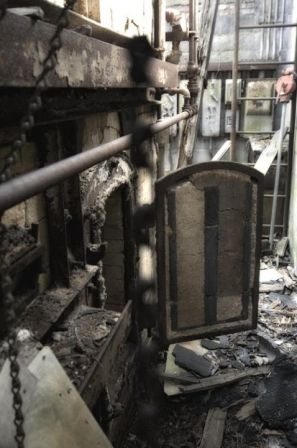
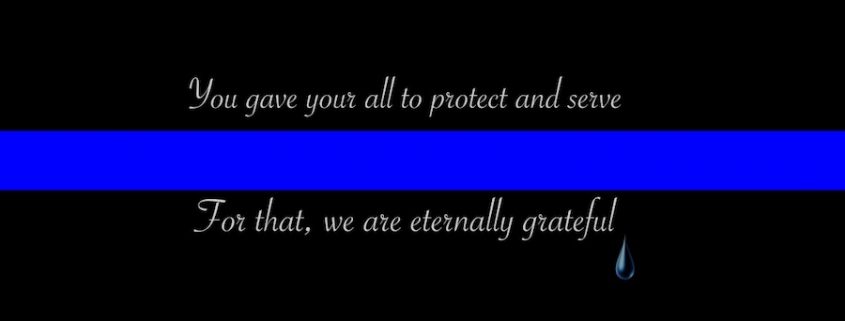
 Agent Ángel Lorenzo-González, 47
Agent Ángel Lorenzo-González, 47 Agent Héctor Matías-Torres, 53
Agent Héctor Matías-Torres, 53
 Amido Black – protein enhancer for blood prints. Click this
Amido Black – protein enhancer for blood prints. Click this  Officer Elias Martinez, 56
Officer Elias Martinez, 56 Trooper Timothy O’Neill, 28
Trooper Timothy O’Neill, 28




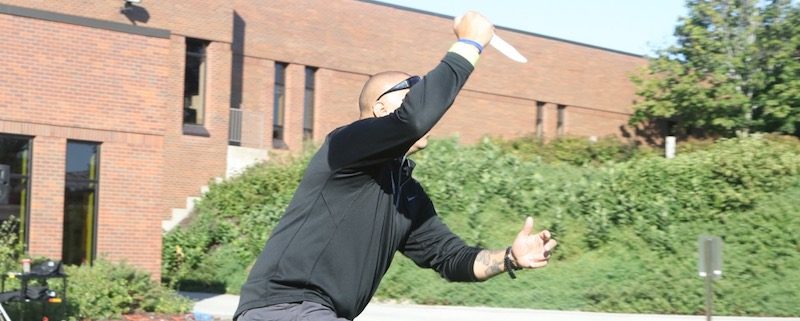
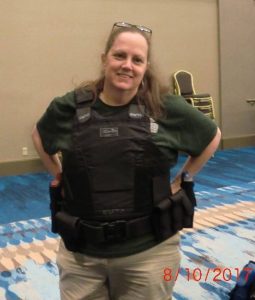
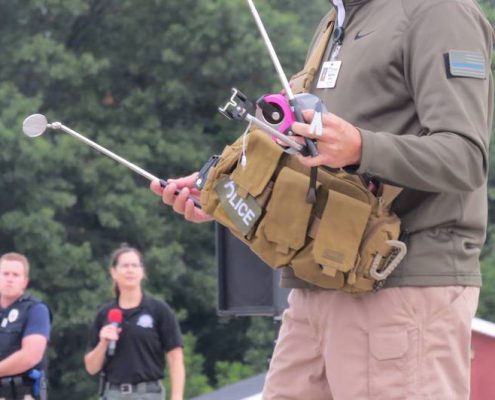
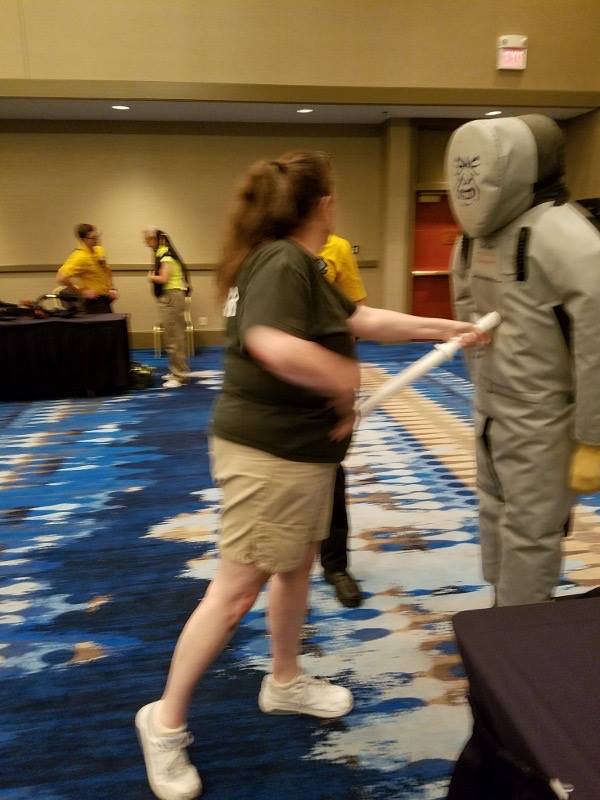

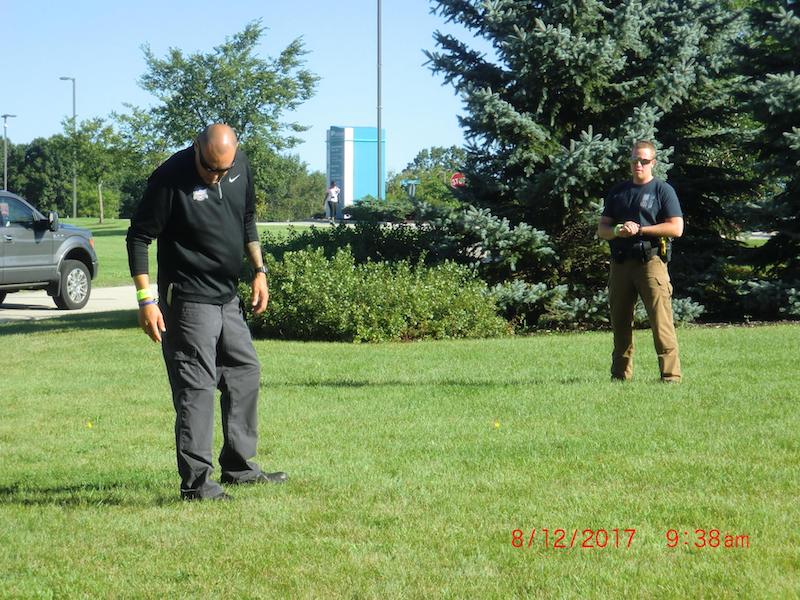
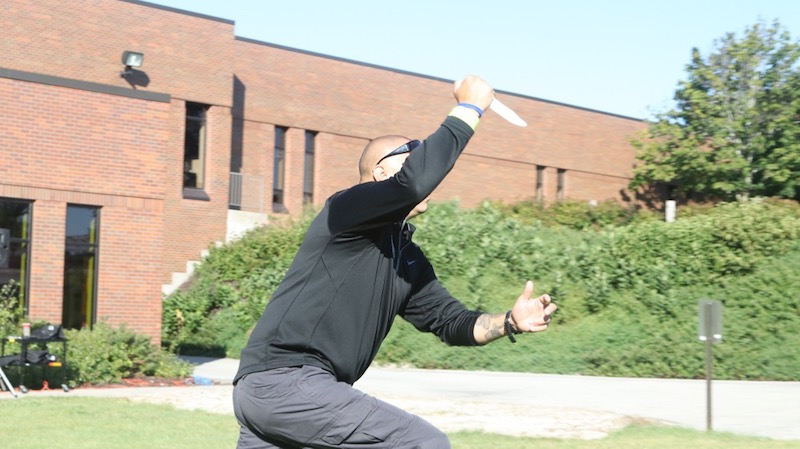
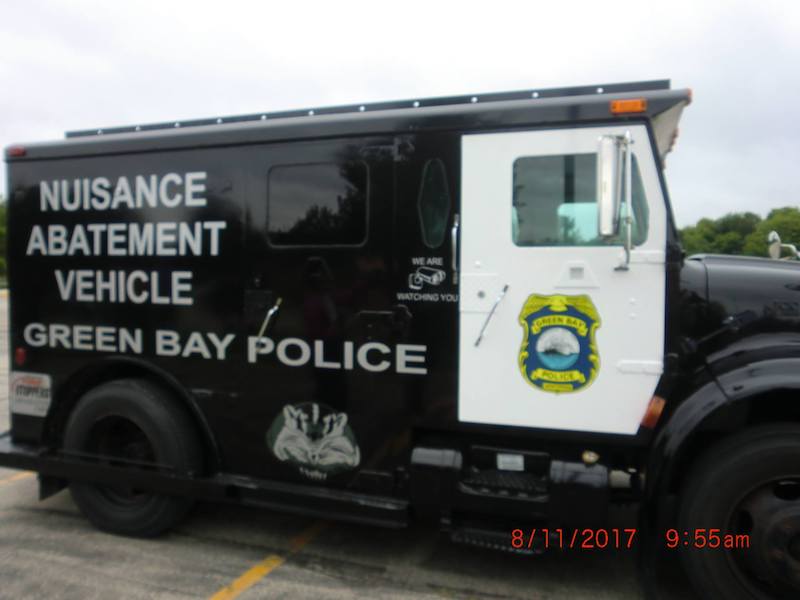
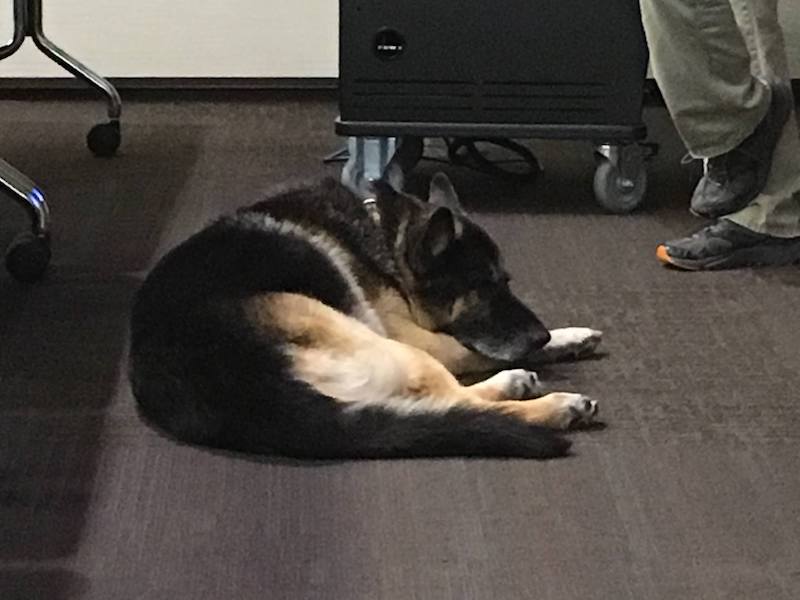
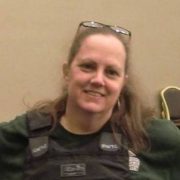



 Agent Roberto Medina-Mariani, 35
Agent Roberto Medina-Mariani, 35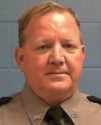 Sergeant Joseph Ossman, 53
Sergeant Joseph Ossman, 53 Deputy Sheriff Julie Bridges, 42
Deputy Sheriff Julie Bridges, 42 Officer William Mathews, 47
Officer William Mathews, 47

